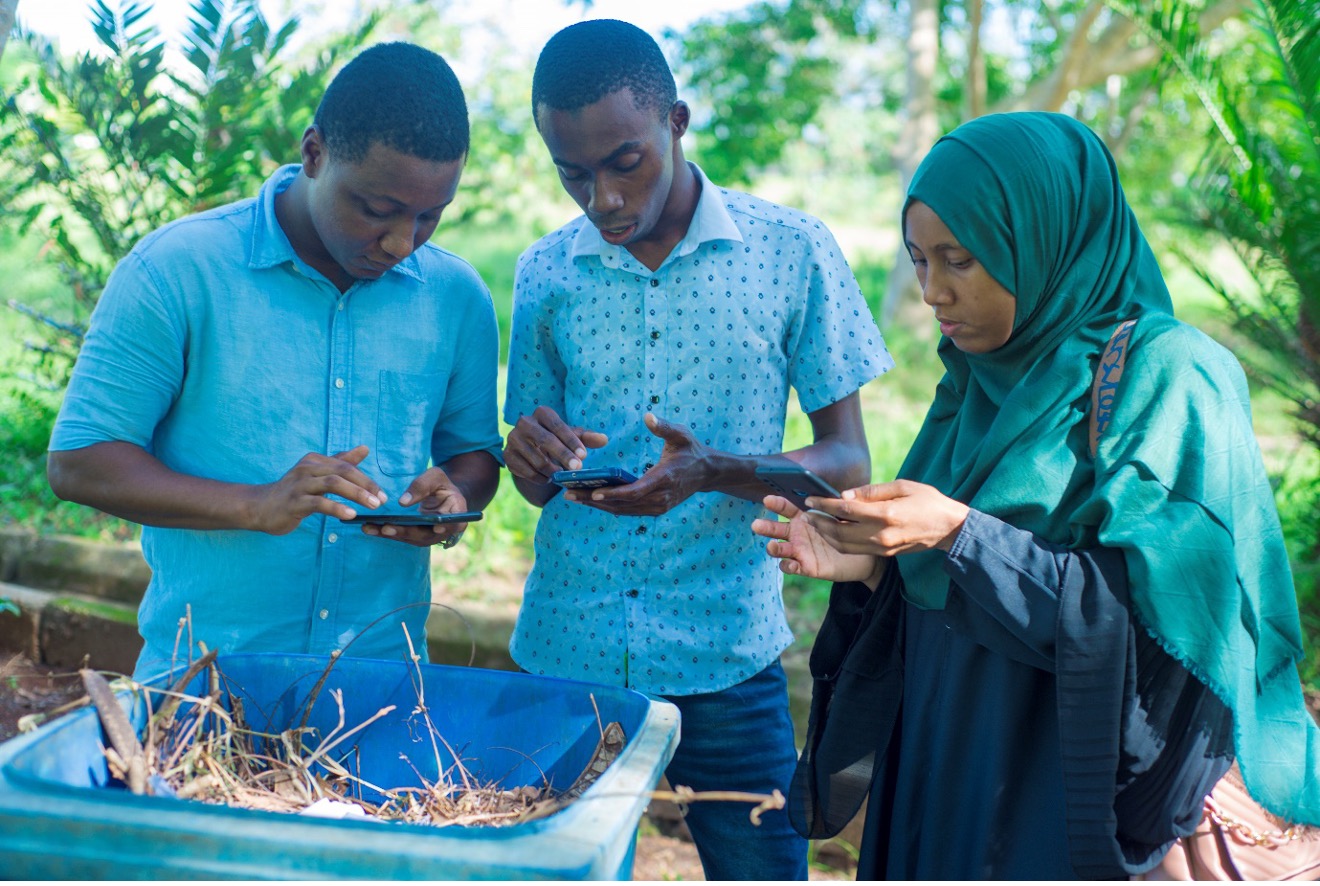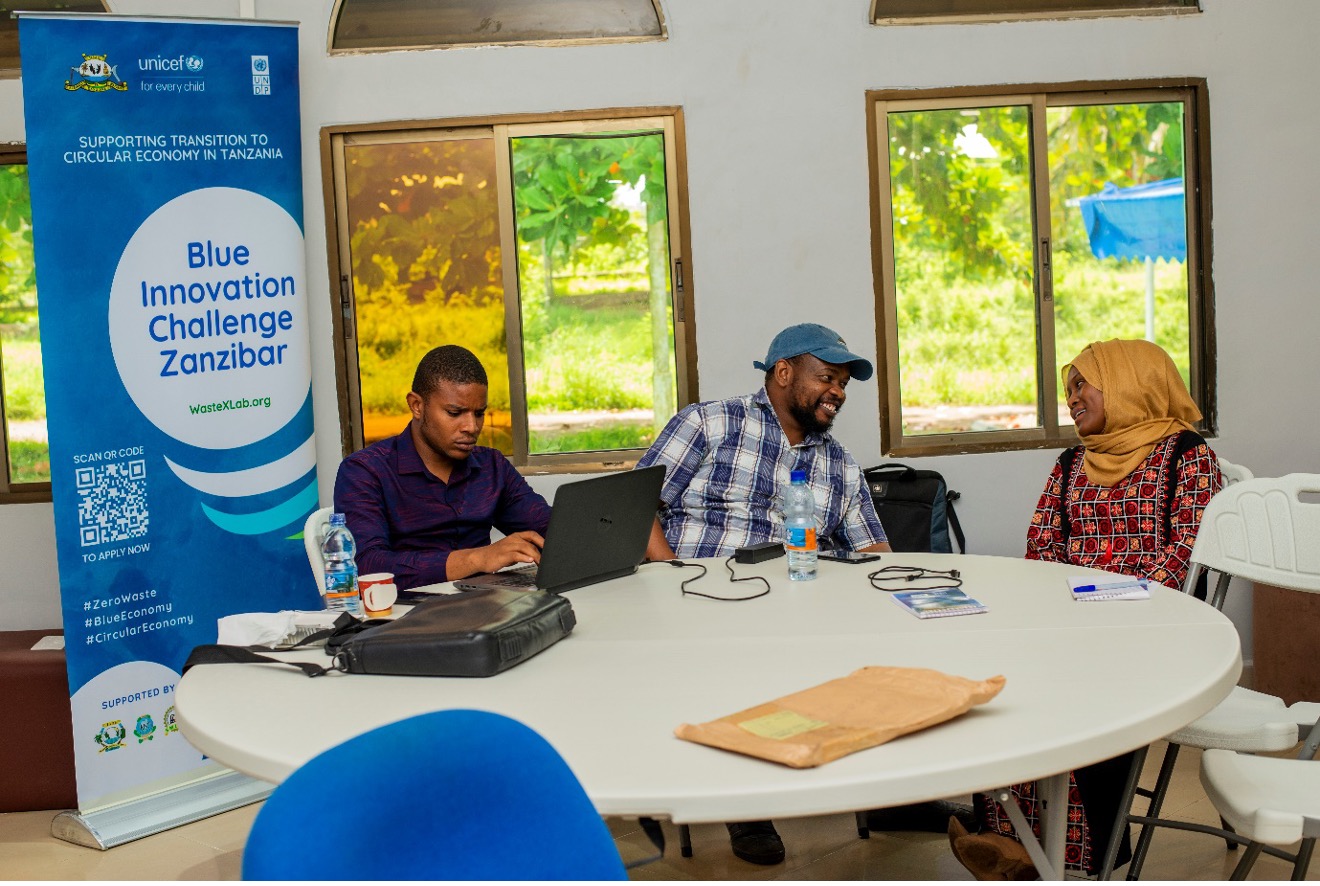Revolutionizing the Future: How Acc Lab's Bold Experiments are Driving Circular Economy Innovation
February 21, 2023
"The circular economy is key to unlocking the potential of Africa's growth and development. It can help create jobs, reduce poverty, and ensure sustainable use of natural resources." Dr. Ngozi Okonjo-Iweala, Director-General of the World Trade Organization

Piloting ODK app at the state university of Zanzibar
Learn how the Tanzania Accelerator Lab drew on lessons and experiences from two different Crowd mapping experiments to design a circular economy initiative.
UNDP Accelerator Lab Tanzania and its partners have made significant progress in improving the country's solid waste management by developing novel data sets that aid in the programming and design of innovative solutions. In recent experiments, UNDP Tanzania conducted a crowd-mapping experiment of informal urban infrastructures in Mwanza's Buhongwa ward, which was later replicated on the Zanzibar islands of Pemba and Unguja. The data collection process included the participation of university students and local residents. Both unique social research and development projects have been published on the UNDP's Data Futures green recovery platform.
Open Map Development Tanzania, Mwanza City's Department of Environment and Sanitation, the City of Zanzibar, UNICEF, and the State University of Zanzibar were among the participants in the exercise. The crowd-mapping was carried out using a combination of methods, including the development of a quantitative questionnaire to assess the extent of improper waste management, i.e., knowledge, behavior, and practices (KAP). The questions were then uploaded to the ODK (Open Data Kit) app platform.Collectors were given smartphones installed with the app. The data was then analyzed, interpreted, and visualized to produce an in-depth report on the waste management situation in the areas.
The lessons and experiences gained from the two experiments were then used to co-create WasteX Lab, a waste management initiative that was one of the Greenshark Tank Innovation Challenge winners. The initiative addresses issues through two flagship programs: 1) a collaborative space (a lecture room converted into an innovation space at the State University of Zanzibar) and 2) The Blue Innovation Challenge, which aims to catalyze, educate, and promote alternative technological innovations for effective waste management. WasteX Lab aims to promote technologies that combat land-based sources of marine litter and microplastics through these aspects.
The initiative uses a variety of components to achieve its goals, including strengthening the business environment for the circular economy, providing business development services, utilizing third-party financing, and engaging in social behavior change and communication (SBCC).
So far, the hub has provided business development training to forty (40) innovators in the circular economy, with most of these innovations utilizing digital technology such as mobile apps, IOT, and blockchain technologies to mention but a few. These businesses are being connected to various financial institutions.

Innovators at the newly established Wastex Lab embedded at the State University of Zanzibar
Lessons learnt
As a result of our social research work in Mwanza and Zanzibar, we can make the following programmatic recommendations:
- Community engagement is essential for the success of circular economy programs. Residents' participation in the design and implementation of initiatives helps to ensure that the solutions are relevant and sustainable.
- Utilize technology: Technology can play a critical role in the success of circular economy programs in Africa and beyond. The use of technology such as GIS and mobile apps, as we have seen in this blog, can help make initiatives more efficient, cost-effective, and accurate.
- Focus on Data Analysis and Interpretation: Data analysis and interpretation are critical; the results of data analysis can help identify challenges and opportunities for improvement and provide insights into the best ways to address them.
- Encourage Collaboration: Collaboration among various stakeholders is critical to ensuring resource sharing and program sustainability.
- Data sharing: Ensure that the data is returned to the people who helped create it in the first place.
As we move toward a more sustainable future, it is critical that we collaborate to achieve the United Nations' Agenda 2030 and its 17 Sustainable Development Goals. We invite partners interested in working in a circular economy to join us in accelerating Agenda. Working together, we can pool our resources, knowledge, and expertise to make a real difference in the communities we serve. Our vision is to build a network of like-minded organizations and individuals committed to promoting circular economy solutions and driving positive change while promoting the use of novel data to understand various social realities.
Authored by: Peter Nyanda, Team Lead and Head of Exploration, Accelerator Lab, UNDP Tanzania
Email: Peter.Nyanda@undp.org
Twitter: @NyandaPN

 Locations
Locations